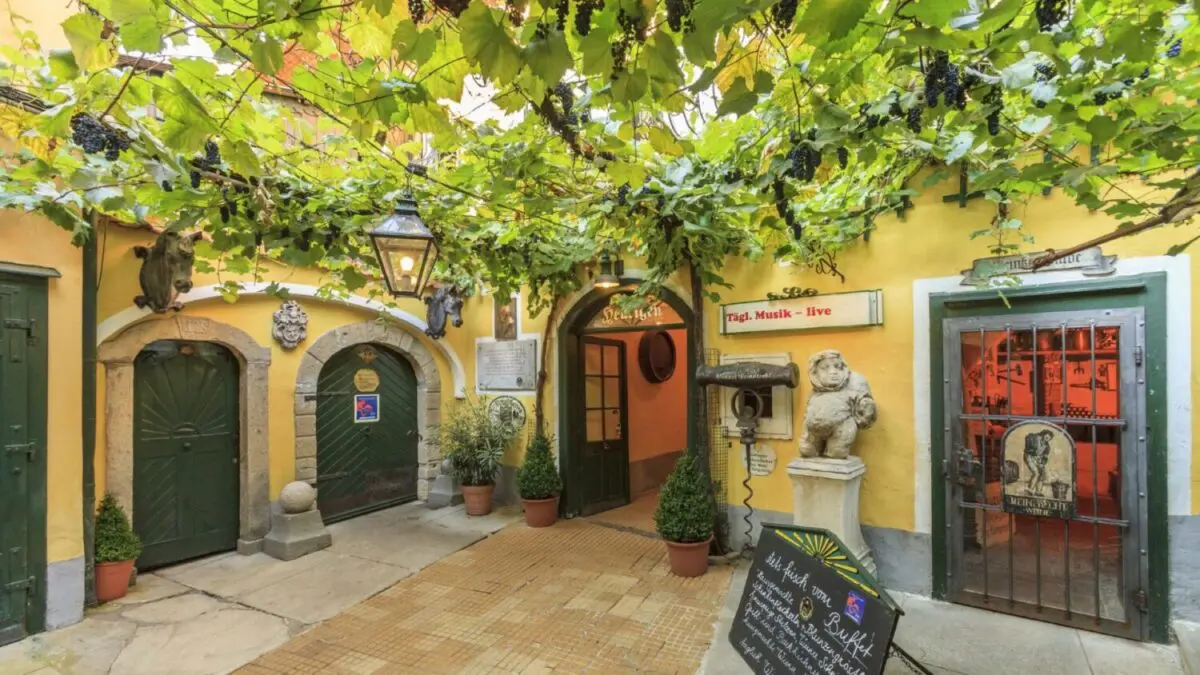In Vienna, there are special establishments licensed to sell only local wine from the last harvest
If somewhere in the world there is a vineyard in a big city, it is usually a tourist attraction – a demonstration plot, which is not very important for the production of the winery.
In Vienna, however, this is not the case at all. The capital of Austria boasts a significant number of vineyards within the city itself, not in its surroundings. More than 700 hectares of its territory are planted with vineyards, which are not only an important economic factor, but also help preserve the green belt that covers the city.
Most vineyards are grown in the outermost districts of the northern part of the city – settlements that were villages until the beginning of the last century, and then were absorbed by the capital. Anyone who wants to visit them can do so – usually on foot or by tram.
The number of individual vineyards is over 400. According to official data, they produce 20,000 hectoliters of wine a year, most of which is sold directly in special wineries called heuriger.
Word you need to know: heuriger
Apart from the vineyards and wineries, the wine culture of Vienna has another meeting point – the wine establishments, which here are called heuriger (pronounced “heurige”). However, Hoyrige is not just a wine bar, but an entire institution with its own rules. It serves only young wine from the last vintage of vines within Vienna. In fact, the word heuriger is abbreviated from heuriger Wein – “this year’s wine”. It is forbidden to add grapes grown elsewhere in the wines sold in Hoyrig.
The wine company makes a menu with a few simple dishes and possibly Viennese folk music for the background. It is mandatory for each heuriger to have a buffet with self-service food.
Interesting fact: The rules for heuriger were announced in 1748 by Emperor Joseph II and have not changed since.
Today there are many restaurants that resemble the atmosphere of a traditional heuriger. They are usually called wine restaurants, but they do not have a Heuriger license, nor the emblem of pine twigs, which denotes only the real wineries in Vienna. The number of authentic wine restaurants is about 180, so the choice is really huge. In many of them, during the warm seasons, visitors sit on long benches outdoors, among the vineyards, as it was centuries ago.
What is the typical Viennese wine you should try?
Nearly 80% of the vineyards in Vienna are planted with white grapes – Riesling, Chardonnay, Sauvignon Blanc and the famous Austrian variety Gruner Veltliner.
If you sit in a heuriger, you will usually see that the wine is Gemischter Satz – a mixture of several varieties (between 3 and 20), which are grown in one place, picked together and placed in common containers in the production of wine. The final result of these blends depends on the skills of the technologists of each winery. Bottled wine is now being sold in more and more places so that customers can take home what they like.
A law that protects Viennese vineyards
In order to preserve the unique viticultural culture in Vienna, the city has a law according to which all vineyards in the city must be cultivated.







